Research has shown that youth who have experienced trafficking or commercial sexual exploitation (CSE) often have histories of homelessness, contact with the juvenile justice system, and / or involvement in the foster care system. When it comes to supporting youth at risk of CSE, there is a lack of safe and supportive housing options designed to meet their unique needs. Reasons for this include a lack of available shelter and residential care beds, restrictive policies that prohibit youth from returning to shelters and foster care placements after leaving, and a lack of foster caregivers with the knowledge, training, and skills required to support youth who have experienced complex trauma. Additionally, there are very few rigorous evaluations of interventions serving youth at risk of CSE. To address these gaps, HRC is partnering with the San Francisco Safety, Opportunity, and Lifelong Relationships (SF SOL) Collaborative to develop continuum of care options for CSE-affected youth.
The Health and Human Rights team is leading the evaluation of SF SOL’s three innovative interventions for youth who have experienced or are at risk of commercial sexual exploitation:
- Family and Me (FAM), a new model of family-based foster care
- Youth Stabilization Pathway, an innovative emergency housing program
- Freedom Forward’s HYPE Center, a multi-service drop-in center designed by and for young people
Through rigorous evaluation and groundbreaking research, this project aims to develop specialized supports for CSE-affected youth that can be replicated throughout California.
Partners
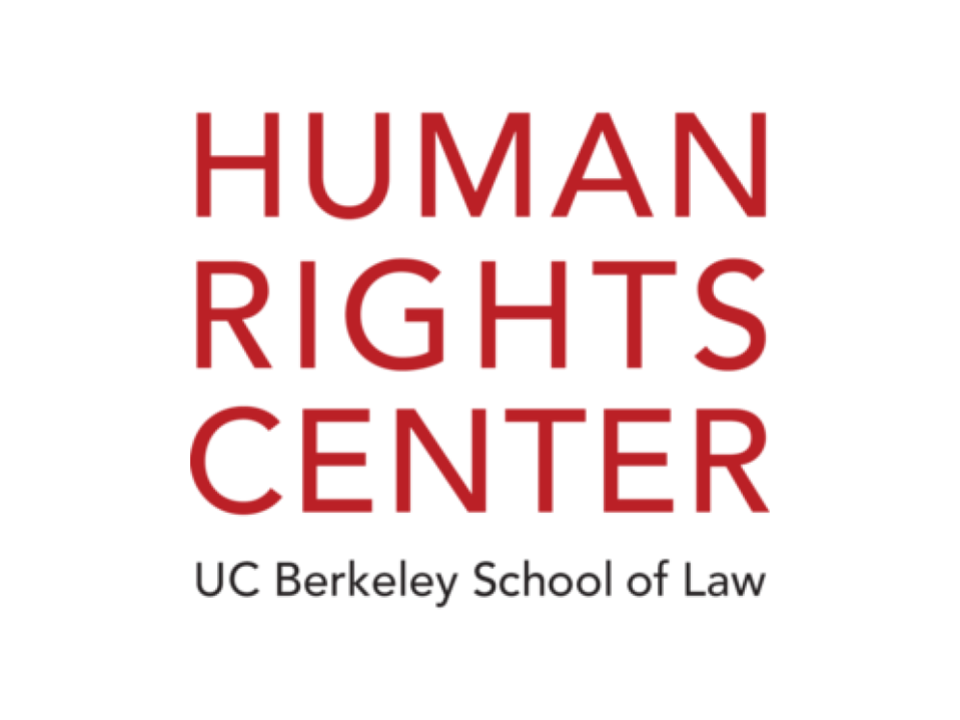

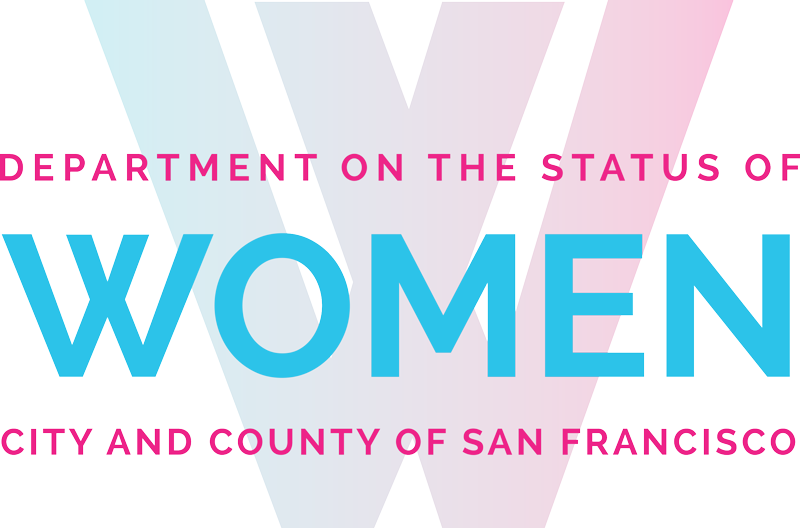
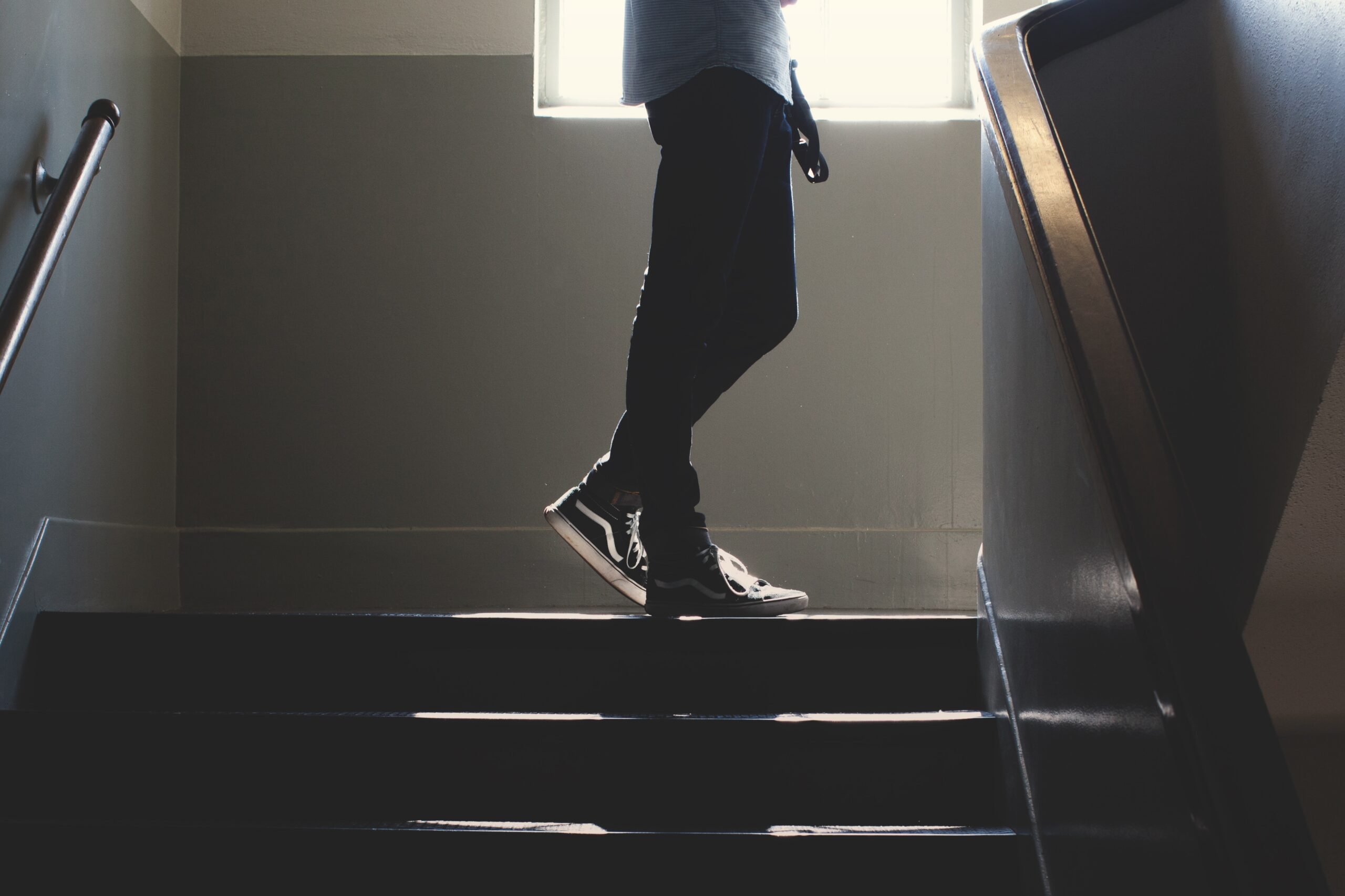
“They [the FAM collaborative] have expanded the conversation in a way that has been helpful and really shined a light on best practices for kids experiencing commercial sexual exploitation in a way that has been beneficial.”

—A care provider interviewed during the FAM 1.0 pilot evaluation
Family and Me Foster Care Program
In partnership with the DOSW, Freedom Forward, and other local nonprofit partners, the FAM pilot was designed to increase the safety, housing stability, and overall well-being of youth who are experiencing or at risk of commercial sexual exploitation, or trafficking. FAM connects youth to family-based placements and offers three unique support components: 1) alternative caregivers to create a shared model of caregiving, 2) specialized training and peer support groups for caregivers, and 3) fast and flexible funding to meet a variety of youth needs and interests.
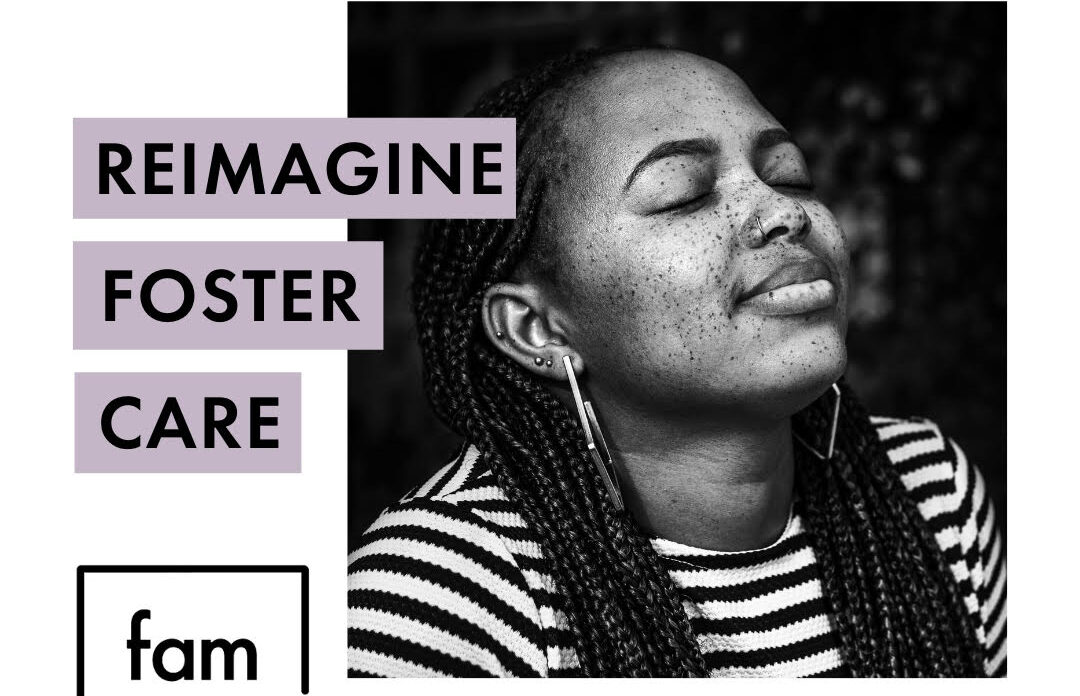
Emergency Housing for Youth
The Health and Human Rights Program team, together with the City of San Francisco and nonprofit partners, is working to develop a new model of emergency housing to meet the immediate needs of youth in situations of commercial sexual exploitation, or trafficking, who may not be ready to transition directly into a family-based foster home. This was a major gap identified in our evaluation of FAM 1.0. This new model for emergency housing, which centers harm reduction strategies, will be piloted in 2024 and evaluated by HRC.
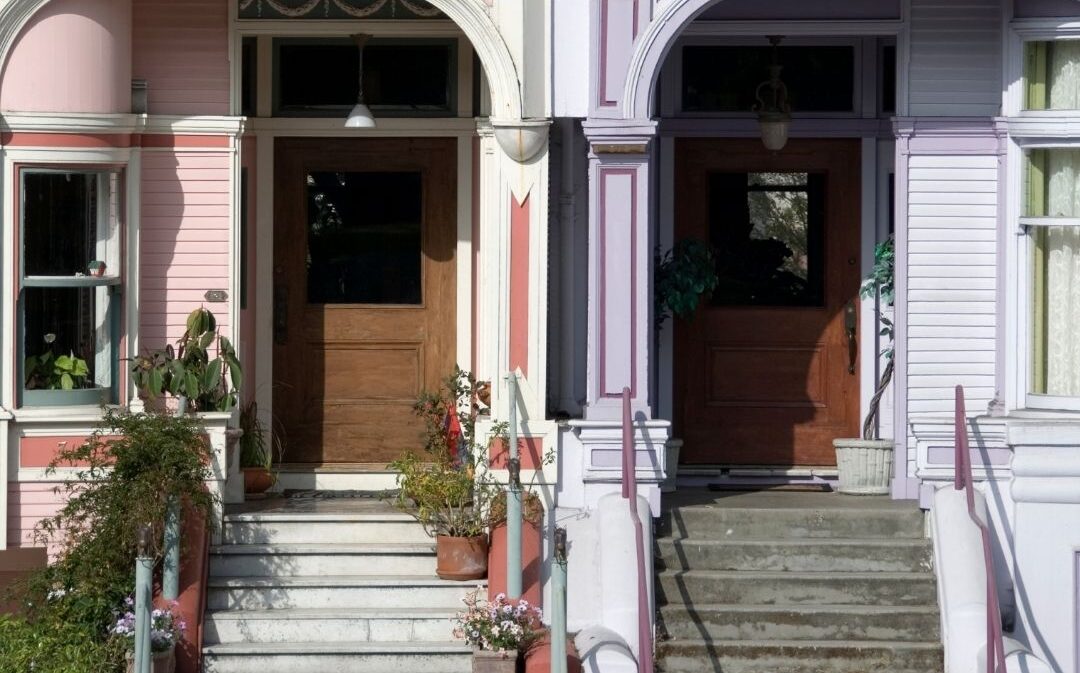
Helping Young People Elevate Center
HRC is partnering with Freedom Forward’s Helping Young People Elevate (HYPE) Center to conduct youth-centered research to inform CSE prevention efforts and support services. The team will explore youth service needs and experiences accessing HYPE Center services and develop recommendations to better meet their needs and preferences.
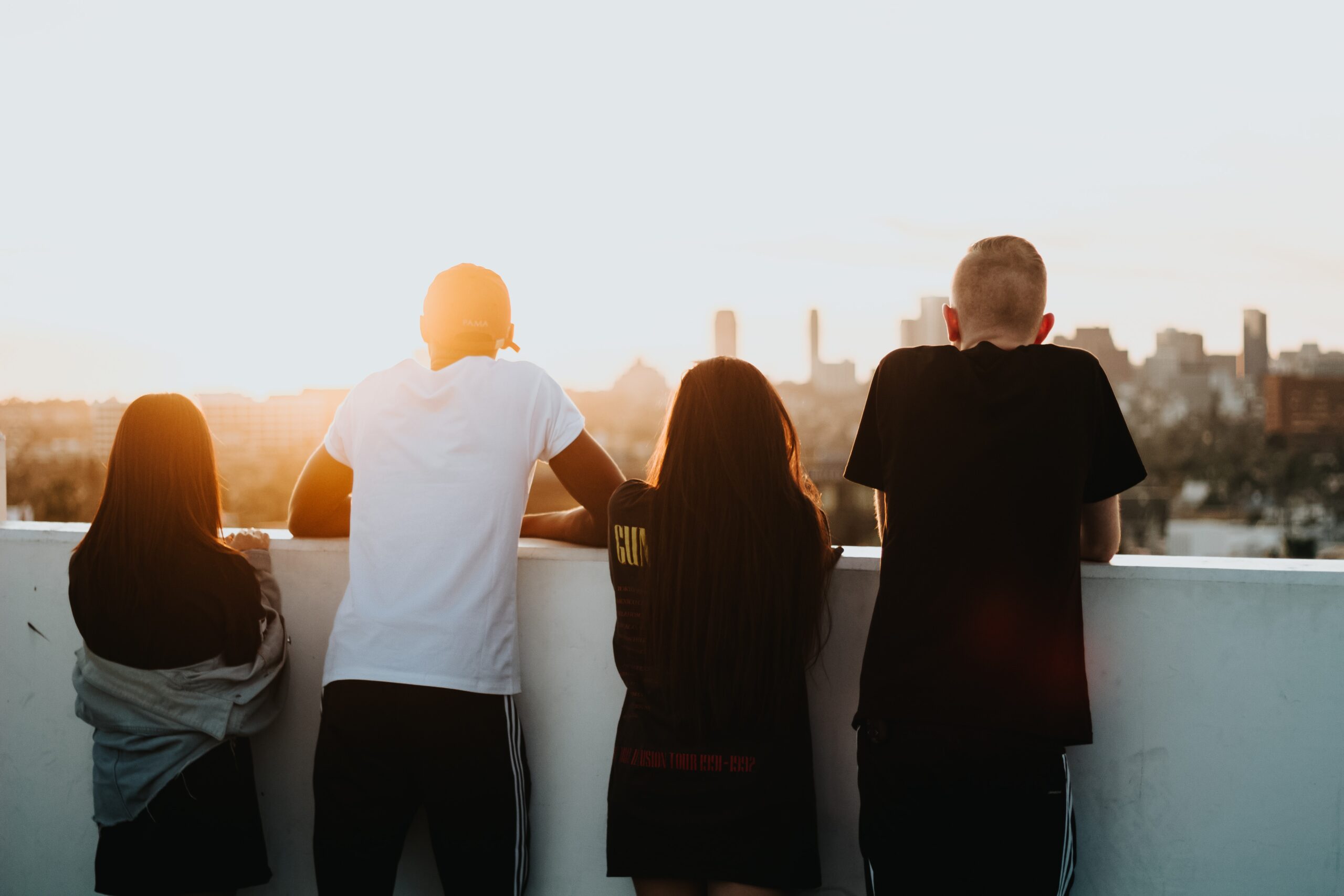
What’s already been done?
HRC led an independent, in-depth evaluation of the first iteration of the family-based foster care pilot (FAM 1.0) from 2019-2022. The evaluation used a longitudinal, mixed-method design to evaluate intervention processes and changes in outcomes for both youth and caregivers over time. Over the evaluation period, our team issued a series of reports with recommendations to adapt and improve the program throughout its implementation. The final report presents key findings from the final pilot evaluation, offers policy and practice recommendations, and lays the groundwork for FAM 2.0.
Publications
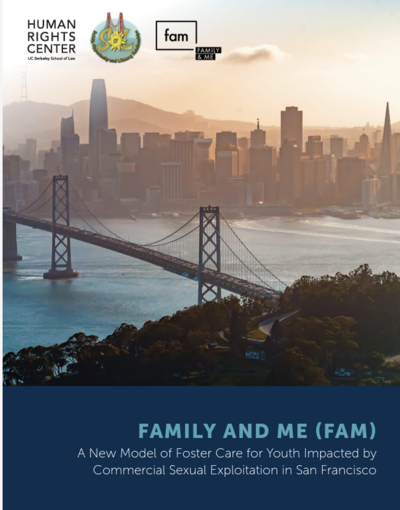
Dec 25, 2022
Family and Me (FAM) A New Model of Foster Care for Youth Impacted by Commercial Sexual Exploitation in San Francisco
View Publication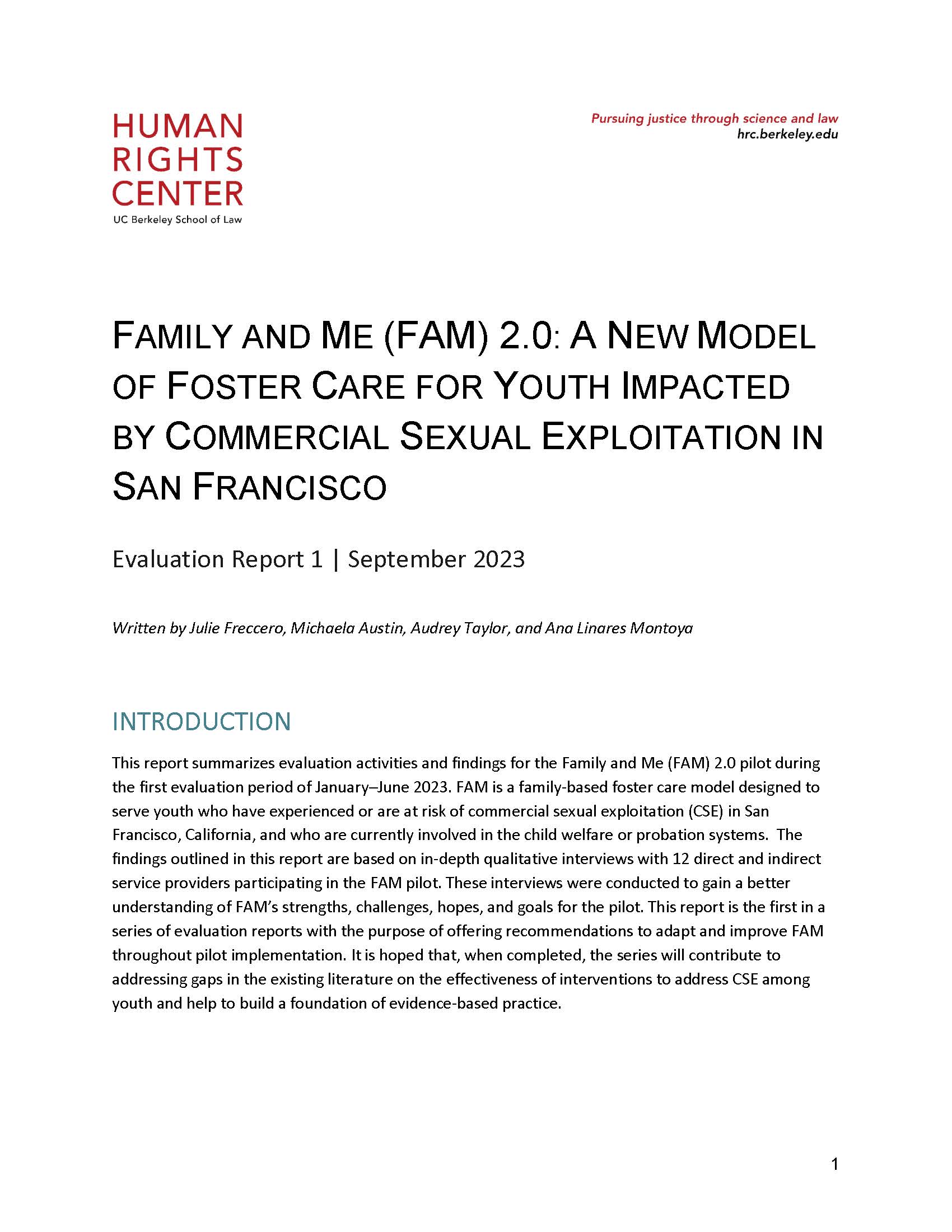
Sep 12, 2023
Family and Me (FAM) 2.0: A New Model of Foster Care for Youth Impacted by Commercial Sexual Exploitation in San Francisco (Evaluation 1)
View Publication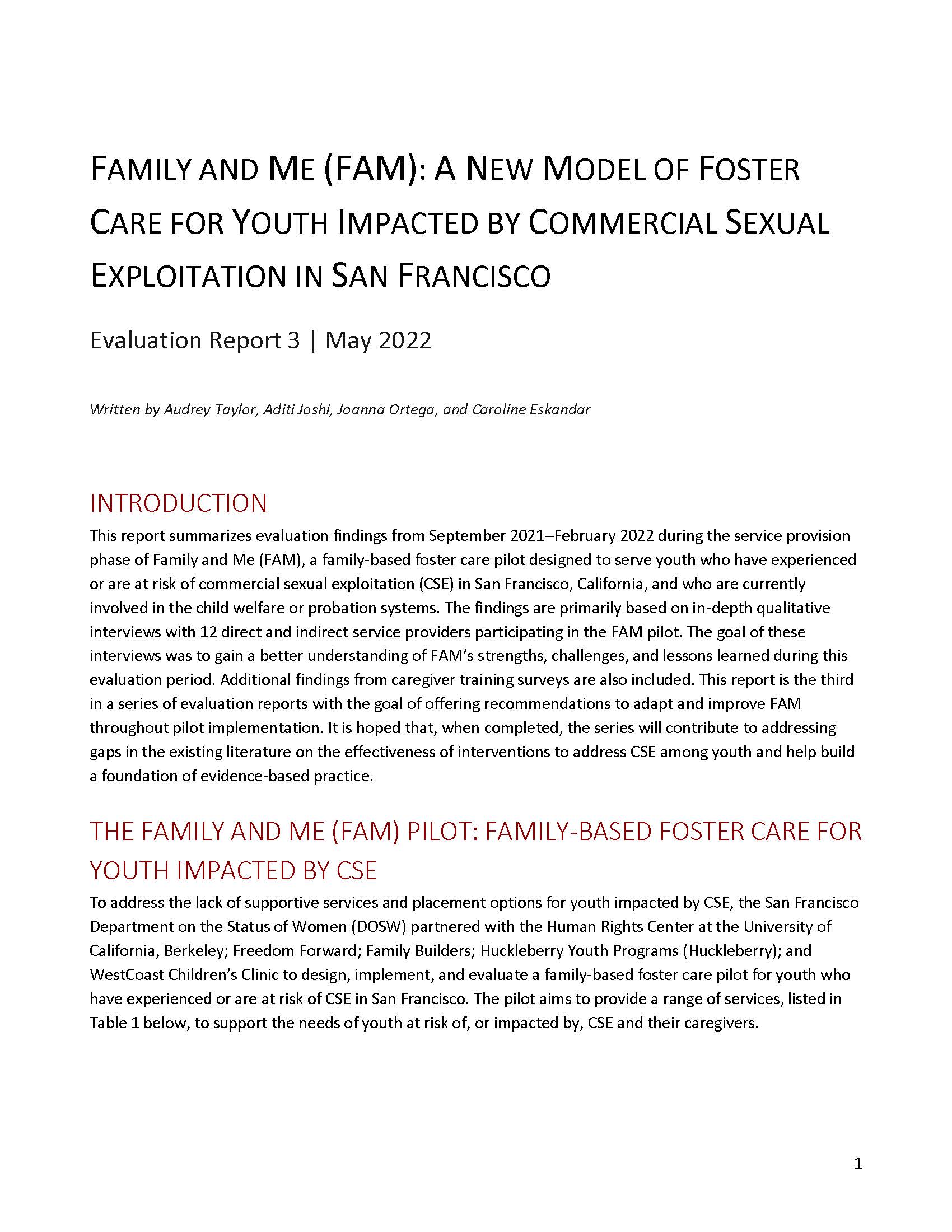
May 17, 2022
Family and Me (FAM): A New Model of Foster Care for Youth Impacted by Commercial Sexual Exploitation in San Francisco (Evaluation 3)
View Publication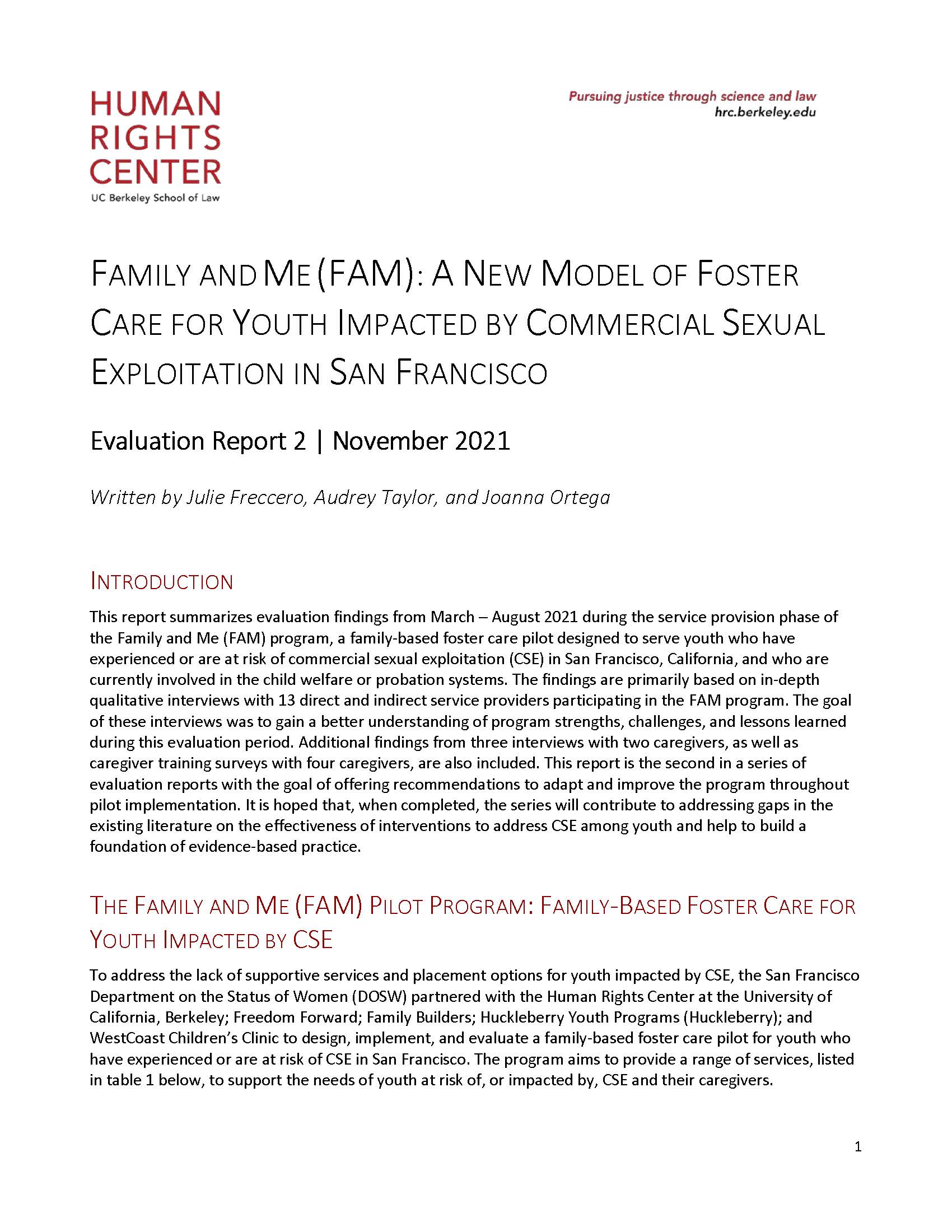
Nov 15, 2021
Family and Me (FAM): A New Model of Foster Care for Youth Impacted by Commercial Sexual Exploitation in San Francisco (Evaluation 2)
View Publication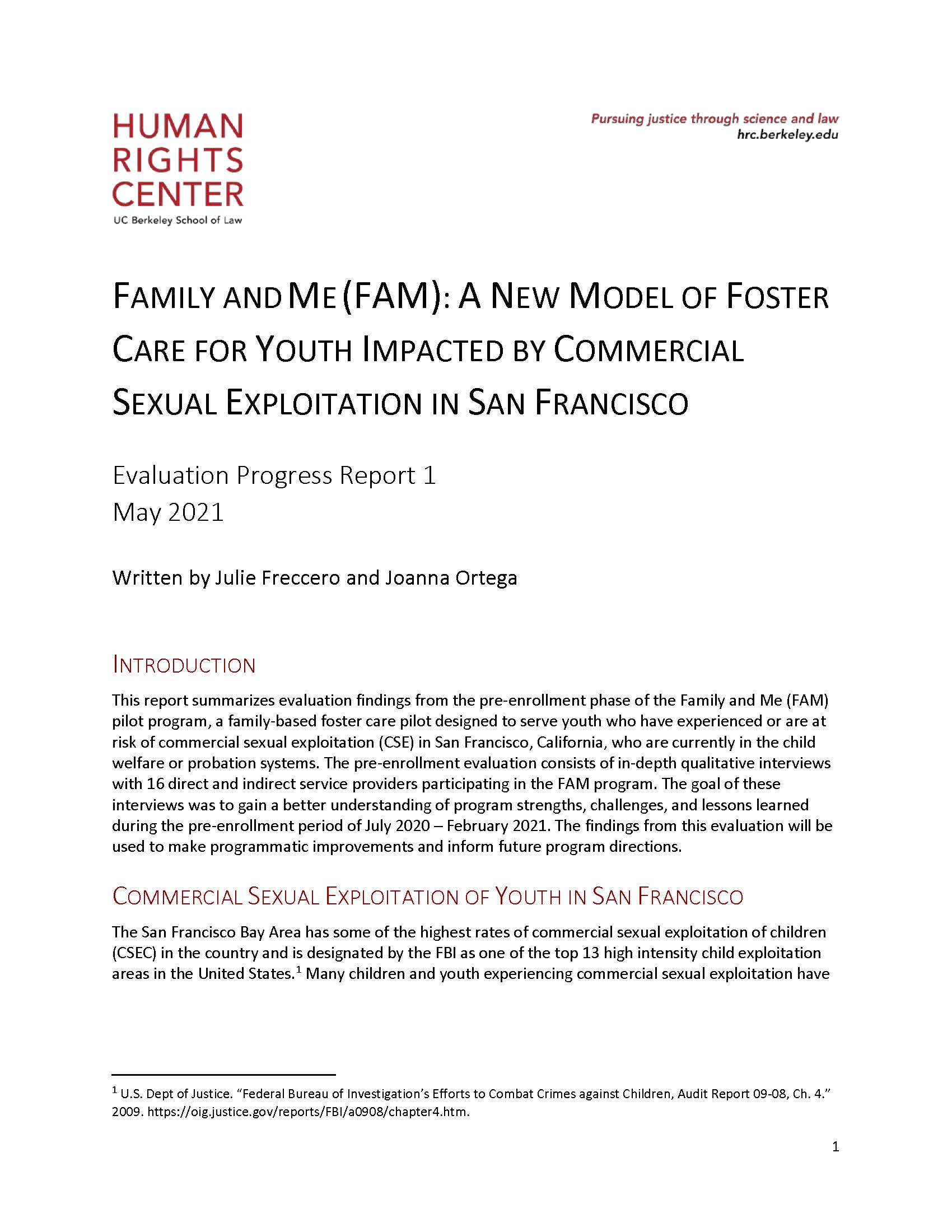
May 10, 2021
Family and Me (FAM): A New Model of Foster Care for Youth Impacted by Commercial Sexual Exploitation in San Francisco (Evaluation 1)
View PublicationNews
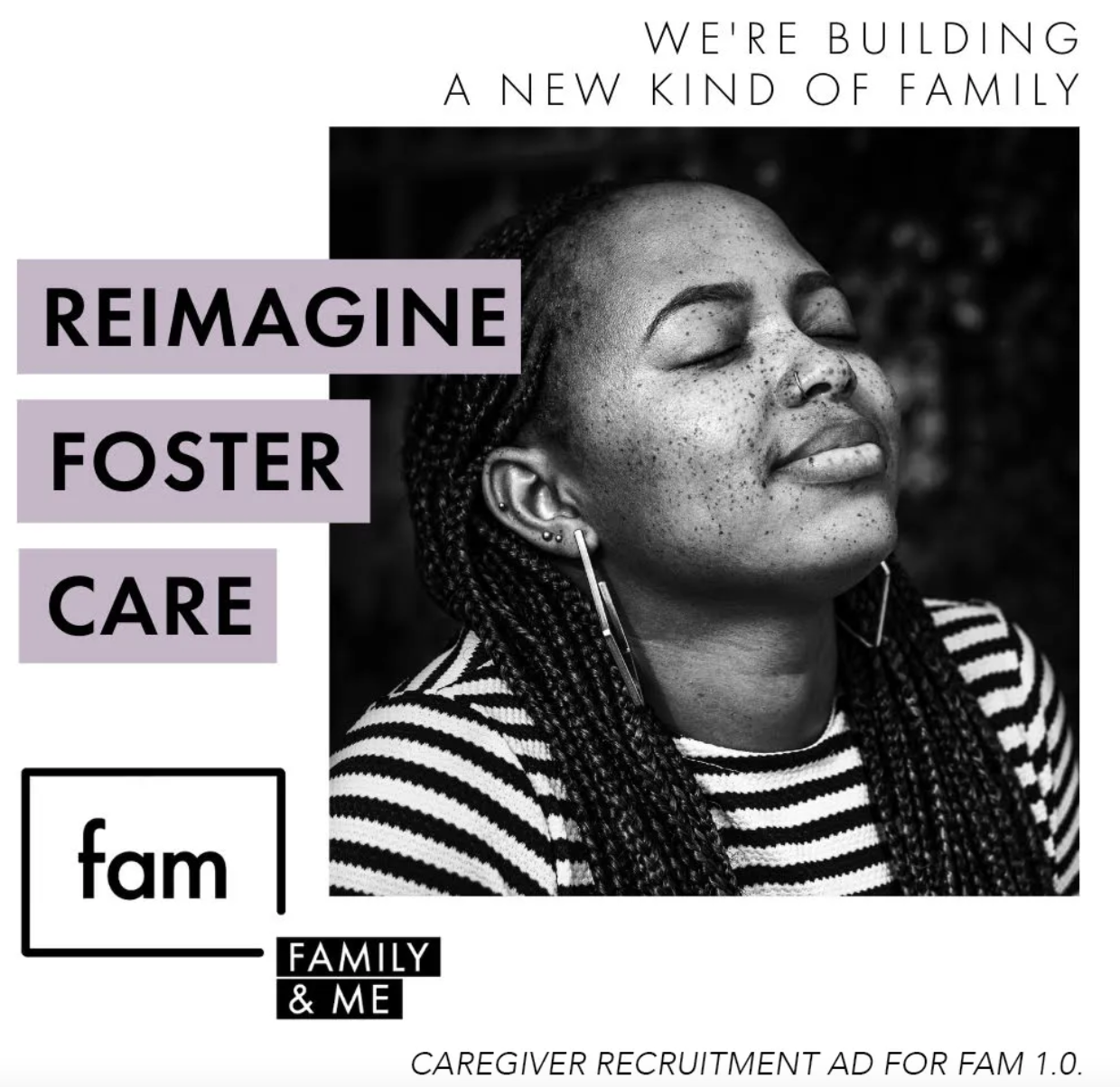
April 11, 2023
Five lessons on housing for youth impacted by commercial sexual exploitation
Commentary — #Verified from the Human Rights Center: Five lessons on housing for youth impacted by commercial sexual exploitation, authored by Julie Freccero and Audrey Taylor.
